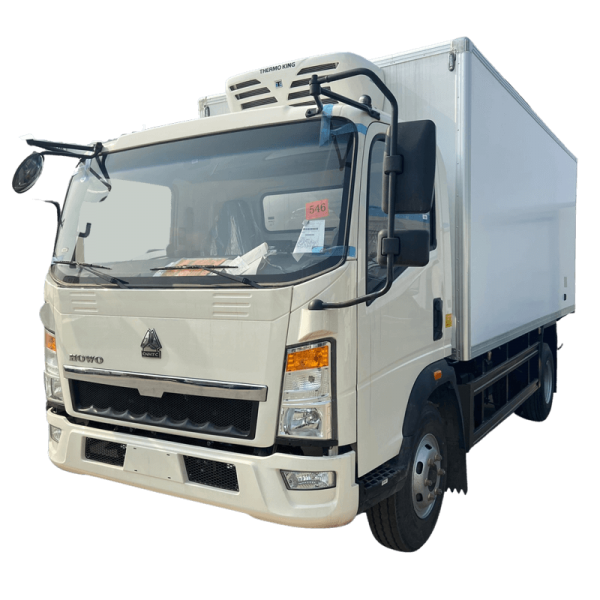Maximizing Waste Minimization with Garbage Compactor Trucks

Introduction
Waste management has become a critical issue in today's world, with the global population producing more waste than ever before. To address this challenge, various technologies and strategies have been developed to minimize waste generation and optimize waste disposal processes. One such technology that has proven to be highly effective is the garbage compactor truck. In this article, we will delve into the world of garbage compactor trucks, exploring their functionalities, benefits, and impact on waste minimization efforts.
Overview of Garbage Compactor Trucks
Garbage compactor trucks, also known as garbage compactors or waste compactors, are specialized vehicles designed to collect and compact solid waste efficiently. These trucks typically consist of a compactor body mounted on a chassis, equipped with a hydraulic system that compresses the waste to reduce its volume. The compacted waste is then transported to disposal sites such as landfills or recycling facilities.
Types of Garbage Compactor Trucks
There are several types of garbage compactor trucks available, each designed for specific waste collection and disposal needs. The most common types include:
1. Rear Loading Compactor Trucks: These trucks feature a rear-loading mechanism that allows waste collectors to load garbage from residential or commercial bins into the compactor body at the rear of the vehicle.

2. Front Loading Compactor Trucks: Front loading compactor trucks are designed for collecting waste from large commercial or industrial establishments. They have a front-loading mechanism that enables efficient collection and compaction of bulk waste.
3. Side Loading Compactor Trucks: Side loading compactor trucks are ideal for narrow streets or areas with limited access. These trucks have a side-loading mechanism that allows waste collection from curbside bins.
4. Stationary Compactors: Stationary compactors are fixed installations used in commercial or industrial settings where large volumes of waste are generated. They compact waste on-site and are emptied by specialized waste collection vehicles.
Benefits of Garbage Compactor Trucks
Garbage compactor trucks offer a wide range of benefits that contribute to waste minimization and efficient waste management practices. https://www.heli-truck.com/best-garbage-truck-brands-a-detailed-comparison/ of the key advantages of using these specialized vehicles include:
1. Increased Efficiency: Garbage compactor trucks can compact waste on-site, reducing the volume of waste and maximizing the truck's capacity. This results in fewer trips to disposal sites, saving time and fuel costs.
2. Improved Hygiene and Safety: Compacted waste is less likely to spill or leak during transportation, reducing the risk of littering and contamination. This helps maintain cleanliness and hygiene in the surrounding environment.
3. Space Optimization: By compacting waste, garbage compactor trucks can accommodate larger amounts of waste in a single load, optimizing space utilization and minimizing the need for additional vehicles or trips.
4. Environmental Benefits: Compacting waste reduces the volume of landfill space required for disposal, helping to conserve valuable land resources. Additionally, efficient waste collection and disposal practices contribute to reducing greenhouse gas emissions and environmental pollution.
5. Cost Savings: Garbage compactor trucks can help municipalities and waste management companies save money by reducing operational costs associated with waste collection, transportation, and disposal.
Impact of Garbage Compactor Trucks on Waste Minimization
The use of garbage compactor trucks plays a significant role in waste minimization efforts by optimizing waste collection and disposal processes. By compacting waste at the source, these vehicles help reduce the volume of waste generated, leading to several positive impacts on waste management practices:
1. Reduced Landfill Usage: Compacted waste takes up less space in landfills, prolonging the lifespan of disposal sites and reducing the need for additional landfill development.
2. Increased Recycling Rates: Garbage compactor trucks can separate recyclable materials from general waste during the compaction process, facilitating recycling efforts and promoting a circular economy.
3. Enhanced Waste Diversion: Compacted waste is easier to handle and transport, allowing for efficient diversion of organic waste for composting or energy recovery, further reducing the amount of waste sent to landfills.
4. Improved Waste Collection Efficiency: Garbage compactor trucks enable waste collectors to cover larger areas and collect more waste in a single trip, enhancing operational efficiency and reducing overall collection costs.
5. Sustainable Waste Management Practices: By incorporating garbage compactor trucks into waste management systems, municipalities and organizations can adopt sustainable practices that prioritize waste minimization, resource recovery, and environmental protection.
Challenges and Considerations
While garbage compactor trucks offer numerous benefits for waste minimization, there are also challenges and considerations that need to be addressed to maximize their effectiveness:
1. Maintenance and Upkeep: Garbage compactor trucks require regular maintenance and servicing to ensure optimal performance. Proper maintenance practices are essential to prevent breakdowns and extend the lifespan of the vehicles.
2. Operator Training: Operating a garbage compactor truck requires specialized skills and training to handle the equipment safely and efficiently. Training programs for operators should be implemented to enhance their knowledge and expertise.
3. Waste Segregation: Effective waste segregation is crucial to maximize the recycling potential of compacted waste. Proper education and awareness programs can help promote waste segregation practices among the public and waste collection personnel.
4. Environmental Impacts: While garbage compactor trucks offer environmental benefits, such as reducing landfill usage and promoting recycling, their operation still contributes to carbon emissions and air pollution. Implementing eco-friendly technologies, such as electric or hybrid compactor trucks, can help mitigate these environmental impacts.
Conclusion
Garbage compactor trucks are valuable assets in the fight against waste generation and environmental degradation. By compacting waste efficiently and optimizing waste collection processes, these specialized vehicles play a crucial role in waste minimization efforts. To maximize the benefits of garbage compactor trucks, it is essential for municipalities, waste management companies, and other stakeholders to invest in technology, training, and sustainable practices that promote efficient waste management and resource recovery. By adopting a holistic approach to waste minimization, we can create a cleaner, greener future for generations to come.
